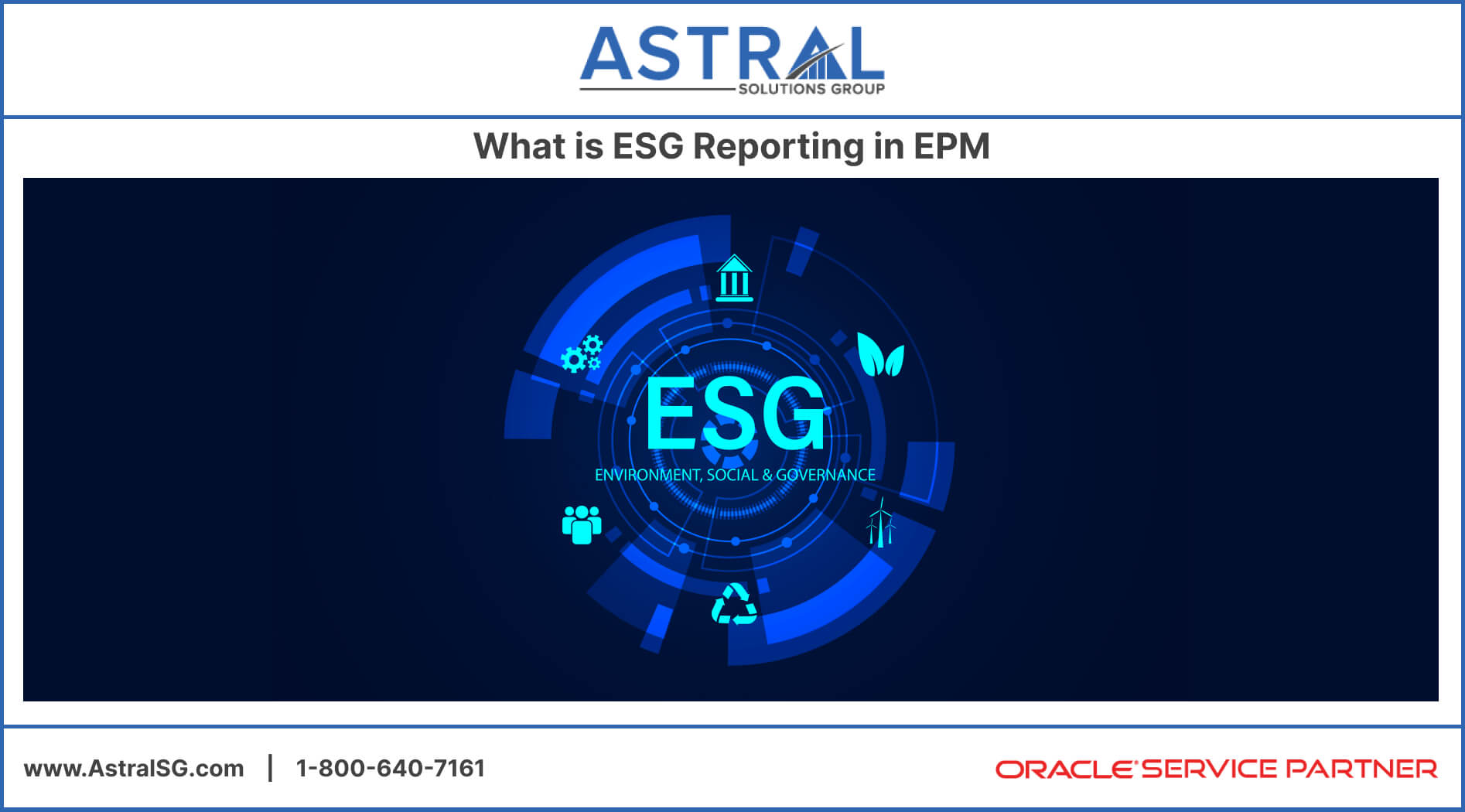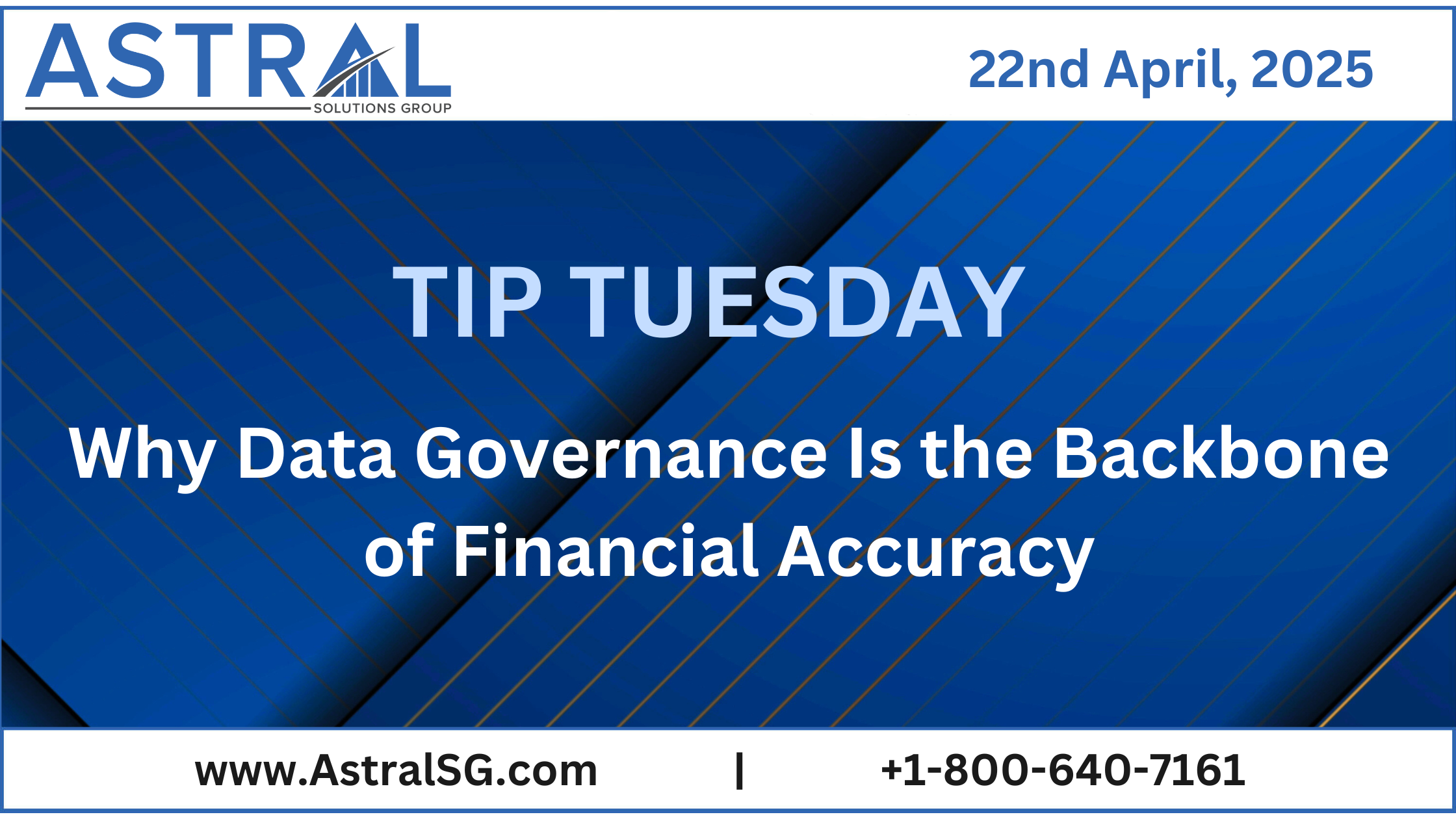What is ESG Reporting in Enterprise Performance Management (EPM), Key Business Benefits, and it’s Powerful Features.

Introduction
Environmental, Social, and Governance (ESG) considerations are gaining immense importance in today’s business landscape. ESG reporting is a vital aspect of Enterprise Performance Management (EPM) that goes beyond traditional financial metrics to assess a company’s impact on the environment, society, and governance practices. This article will delve into the concept of ESG reporting in EPM, explore its key business benefits, and highlight the powerful features that make it a critical tool for modern businesses.
Understanding ESG Reporting.
Defining ESG
ESG stands for Environmental, Social, and Governance. It represents a set of criteria for assessing a company’s sustainability and ethical impact. Environmental factors consider a company’s carbon footprint, energy consumption, waste management, and more. Social factors include employee relations, diversity and inclusion, community engagement, and human rights. Conversely, governance focuses on the company’s leadership, ethics, transparency, and shareholder rights.
The Purpose of ESG Reporting
ESG reporting is a transparent means for companies to disclose their performance and initiatives related to sustainability and social responsibility. It enables stakeholders, including investors, customers, employees, and communities, to assess a company’s ethical practices and sustainability efforts.
ESG Metrics and Indicators
ESG reporting involves tracking and measuring specific metrics and indicators related to environmental, social, and governance factors. These may include carbon emissions, water usage, employee turnover, board diversity, etc.
The Evolution of ESG Reporting
Historical Context
ESG reporting has evolved over the years, with increasing awareness of the impact of business activities on the planet and society. Early sustainability reporting focused on voluntary disclosures, but now it has become a mainstream practice.
Current ESG Frameworks
Today, various ESG frameworks and standards exist, such as the Global Reporting Initiative (GRI), Sustainability Accounting Standards Board (SASB), and Task Force on Climate-related Financial Disclosures (TCFD). These frameworks help companies structure their ESG reporting and facilitate comparability across industries.
Key Business Benefits of ESG Reporting in EPM
Enhanced Reputation and Brand Value
Companies with robust ESG practices are more likely to earn the trust and respect of their stakeholders, leading to enhanced brand reputation and customer loyalty.
Attracting Responsible Investors
Investors are increasingly considering ESG performance when making investment decisions. Strong ESG credentials can attract socially responsible investors and positively impact a company’s stock value.
Improved Risk Management
ESG reporting helps identify and mitigate potential risks, such as regulatory non-compliance, reputational damage, and operational inefficiencies.
Strengthening Stakeholder Relationships
Engaging in ESG reporting fosters open communication and builds trust with various stakeholders, including employees, customers, and communities.
The Role of ESG Reporting in Sustainable Development
ESG and the United Nations Sustainable Development Goals (SDGs)
ESG reporting plays a crucial role in contributing to the achievement of the United Nations’ Sustainable Development Goals. Companies can actively participate in global sustainability initiatives by aligning business practices with the SDGs.
The Power of ESG Data Analytics
Leveraging Big Data for ESG Insights
Big data analytics enables companies to analyze vast amounts of ESG-related data and extract meaningful insights for strategic decision-making.
Predictive Analytics and ESG Reporting
Predictive analytics allows businesses to anticipate future ESG trends and challenges, facilitating proactive measures to address them effectively.
ESG Reporting and Regulatory Compliance
Government and Industry Standards
Regulators and industry bodies are increasingly advocating for ESG reporting, making it essential for companies to comply with evolving reporting requirements.
Integrating ESG with Financial Reporting
The integration of ESG metrics into financial reporting provides stakeholders with a comprehensive view of a company’s performance and long-term sustainability.
Overcoming Challenges in ESG Reporting
Data Collection and Accuracy
Gathering reliable ESG data can be challenging, but companies must prioritize accurate reporting to ensure stakeholders are aware.
Addressing Skepticism and Greenwashing
Some stakeholders may need clarification about the authenticity of ESG initiatives. Companies must demonstrate a genuine commitment to sustainability to avoid accusations of greenwashing.
Incorporating ESG into Corporate Strategy
Aligning ESG Goals with Business Objectives
ESG considerations should be embedded in a company’s overall strategy to ensure they are aligned with its purpose and vision.
ESG Integration in Decision-making
ESG factors should influence decision-making processes, enabling businesses to make socially and environmentally responsible choices.
ESG Reporting and Investor Relations
Communicating ESG Performance to Stakeholders
Transparent communication of ESG efforts is crucial in building trust with investors and other stakeholders.
ESG Ratings and Rankings
Third-party ESG ratings and rankings can influence investor perceptions and impact a company’s access to capital.
The Future of ESG Reporting
Technological Advancements
Technological advancements like AI and blockchain will play a vital role in streamlining ESG data collection and analysis.
ESG as a Driver of Innovation
ESG considerations will drive businesses to innovate and develop sustainable solutions to global challenges.
Conclusion
ESG reporting in EPM has emerged as a powerful tool for companies to demonstrate their commitment to sustainability, social responsibility, and good governance. By adopting ESG practices and transparently reporting their performance, businesses can enhance their reputation, attract responsible investors, and contribute to sustainable development. As the importance of ESG continues to grow, companies must embrace it as a fundamental aspect of their corporate strategy.
FAQs
Q: What is the significance of ESG reporting for businesses?
A: ESG reporting helps businesses showcase their sustainability efforts, gain investor trust, and manage risks effectively.
Q: Are there any regulatory requirements for ESG reporting?
A: Several governments and industry bodies are mandating ESG reporting for certain companies.
Q: Can ESG reporting drive innovation?
A: Yes, as companies focus on sustainability, they are likely to develop innovative solutions to global challenges.
Q: How can ESG reporting impact a company’s brand value?
A: Strong ESG credentials can enhance a company’s reputation, increasing brand value and customer loyalty.
Q: What role does predictive analytics play in ESG reporting?
A: Predictive analytics helps companies anticipate future ESG trends and take proactive measures to address them.
Contact us and we would love to share our experience with ESG Reporting in EPM. Please email at info@astralsg.com to learn more about ESG(Environmental, Social, and Governance) Reporting in EPM.
Astral Solutions Group is a Trusted and Leading OneStream implementation Partner and Oracle Hyperion EPM On-Premises on Oracle EPM cloud consulting company and Oracle Service Partner. Astral Solutions Group is based in Mississauga, Ontario Canada and we provide Consulting Services across Toronto, Brampton, GTA, Ontario, Canada, United States and in North America.




